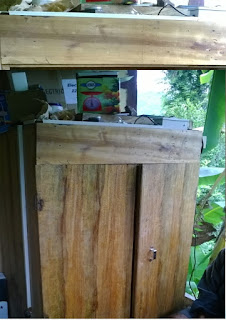A three days training on how to make vegetable drier was
provided to the farmers of Kikhorthang Gewog by National Post Harvesting Unit
(NPHU) based in Dagana.
Now, a total of 15 vegetable driers were constructed in the
gewog on cost sharing basis between the public and NPHU. Training and almost
all the materials were provided from NPHU except the local materials like sand,
wood, stone and labor contribution made from public .The total cost of each
machine is approximately Nu. 25,000(twenty five thousand) excluding labor and
local materials.
National Post Harvesting unit based in Dagana has constructed
64 driers and 27 stores in five dzongkhag
( Dagana, Gasa, Wangdue,Tsirang and Punakha) in the fiscal year
2014-2015.
The vegetable drier I have shown above is incomplete; the
complete machine will have a tray in between where we can put and dry
vegetables and other items like meat etc.
The temperature need to be set at 50 degree Celsius for meat
and 45 degree Celsius for vegetables. We require only 6 t 7 hours to dry
vegetables and 18 hours for meat.
The advantages of having vegetable driers are that farmers
will have hygienic dry vegetables and other food including meat. They require less
time to dry their vegetables and even during the summer season they can dry
their vegetables and other items as and when required.
Reported by Damcho, Kikorthang Gewog, Tsirang













